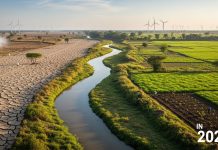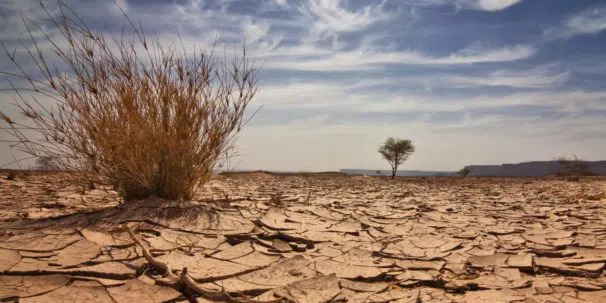Climate change is a critical issue that demands immediate attention. It is causing significant effects on our planet, including rising sea levels, extreme weather events, and biodiversity loss. Human activities such as deforestation and burning fossil fuels are the main causes of climate change. Impact
The United Nations Intergovernmental Panel on Climate Change (IPCC) has issued several reports emphasizing the need for urgent action to mitigate the impacts of climate change. The latest report indicates that the world is dangerously close to reaching the 1.5°C temperature rise limit agreed upon in the Paris Agreement.
Nigeria, like other countries, is vulnerable to the impacts of climate change. Its high dependence on agriculture and limited water resources make it particularly susceptible. The changing rainfall patterns and higher temperatures are leading to increased water scarcity and reduced water quality, which negatively impacts agriculture, ecosystems, and drinking water supply, increasing the risk of water-borne diseases.
In addition, flooding is becoming more frequent and severe, resulting in the loss of property and infrastructure. Furthermore, the rise in sea levels due to melting ice caps and glaciers can lead to saltwater intrusion, contaminating freshwater resources and making them unsuitable for human consumption, which can lead to conflicts over water resources.
One of the significant impacts of climate change on soil in Nigeria is desertification, which is leading to soil degradation, erosion, and loss of biodiversity, negatively impacting agriculture and food security, as well as the livelihoods of many communities.
To mitigate the impacts of climate change, it is essential to reduce greenhouse gas emissions. This requires a transition towards renewable energy sources such as solar and wind power, as well as sustainable agriculture and forestry practices.
Additionally, adaptation measures such as improving infrastructure to withstand extreme weather events and promoting nature-based solutions such as wetlands restoration and mangrove planting are necessary to cope with the impacts of climate change.
Addressing the impacts of climate change on soil and water requires a collective effort. Governments, businesses, and individuals must all play their part in handling this issue.
The Nigerian government has taken steps to mitigate and adapt to the impacts of climate change, such as promoting sustainable land management, reforestation, and water conservation, and increasing the use of renewable energy. However, more needs to be done to address the urgent challenges posed by climate change.
In conclusion, climate change is having a severe impact on soil and water, which are vital components of our planet’s ecosystem. We must take action to mitigate the effects of climate change on soil and water to ensure the long-term sustainability of our planet and the well-being of all its inhabitants. It is crucial to protect our planet and ensure a sustainable future for generations to come

















